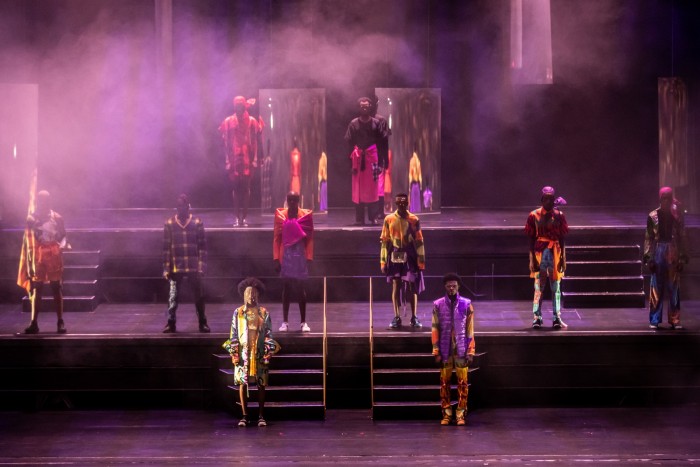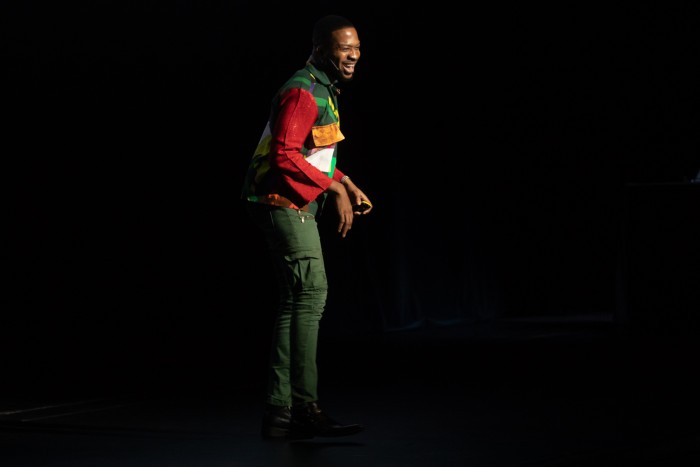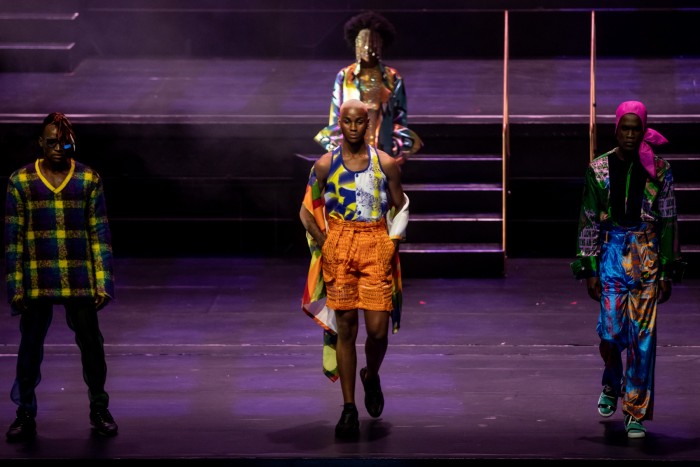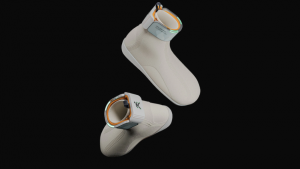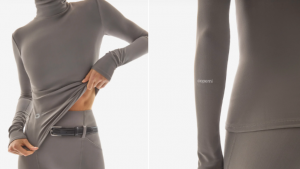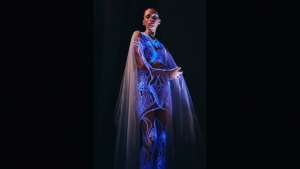At Design Indaba Conference 2019, fashion designer Adebayo Oke-Lawal inspired the audience with the story of how he went from a young boy who was bullied and misunderstood to one of Africa’s most celebrated fashion designers.
For a long time Oke-Lawal dreamt of working in the fashion industry and designing his own clothes. However, coming from a traditional home, being a fashion designer was not exactly the most favoured option.
Oke-Lawal explains that growing up in Nigeria there weren’t many fashion education opportunities available to him. But he wouldn’t let that get in his way.
“I interned from the age of 18 to 20. I would leave school and sneak to work at fashion houses...I’d work at every place I could work to learn the craft,” says Oke-Lawal.
In 2010, 20 year old Oke-Lawal launched his brand Orange Culture. The name was inspired by an article written by him when he was 15, titled The Orange Boy. It was about his experiences growing up in Nigeria. The designer attended an all-boys school, which he describes as being incredibly hypermasculine.
“I’d be talking and be told to talk louder and talk like a man. It was always that aggravation towards me just because of the way I represented myself. I was being bullied a lot,” says Oke-Lawal.
The “Orange Boy” was therefore about him trying to fit into the idea of what masculinity was, who a man was and what type of life a man needs to live.
“Orange Boy was a representation of celebrating that sense of individuality,” says the designer.
He adds, “When you think of the colour orange, it is not a colour that everyone is drawn to. It is not something that is easy on the eyes. It’s like you have to look at it, absorb it and then think about it before you think it’s beautiful or you hate it,” says Oke-Lawal.
For the designer orange was a colour that was unique enough to embrace and explore the ideas of individuality and diversity that he wanted to represent. He wanted it to push against the idea of toxic masculinity.
“Whatever society called me to be wasn’t who I wanted to be and that’s fine. There isn’t only one type of man. There isn’t only one yardstick to measure a man’s masculinity.” says Oke-Lawal.
His first collection was met with intense criticism. People were sending him death threats and accusing him of trying to push a certain agenda. The weight of the criticism nearly led to him giving up on fashion design all together.
However, what motivates him is the stereotypes that exist in our society. He believes that one should question things. The political climate within Nigeria and the conversations around this environment also pushes and motivates him to produce his clothing lines that break these stereotypes.
“Fashion can be used for social change...it can be used to create conversations,” says Oke-Lawal.
He adds, “Nine years ago we started talking about masculinity and toxic masculinity in Nigeria and now almost everybody is talking about it because we’ve pushed the conversation. Fashion is more expressive than other industries. So you can use fashion to talk about things that people are afraid of without scaring people off.”
Oke-Lawal concluded his talk in no small way, with the official launch of his winter 2019 collection. Titled Don’t Look Under My Skirt, the androgynous collection features bright 80s-inspired colours, silk shirts and some futuristic garments.
Scroll down to view his talk.
Watch more:
Kiko Farkas on nature's role in his work as a graphic designer

